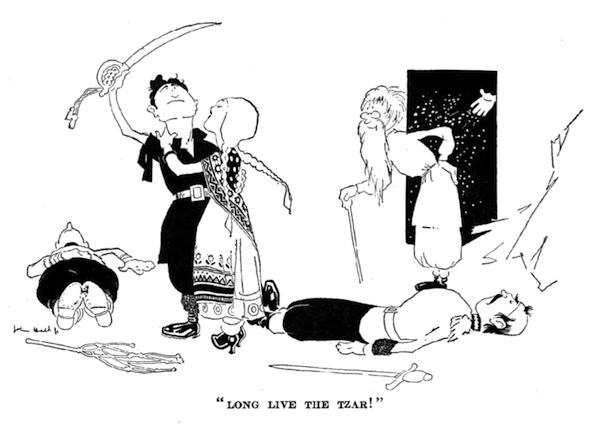Andrew J. Bacevich on the War We Can’t Win

From “The War We Can’t Win,” in the November 2009 Harper’s Magazine
History deals rudely with the pretensions of those who presume to determine its course. In an American context, this describes the fate of those falling prey to the Wilsonian Conceit. Yet the damage done by that conceit outlives its perpetrators.
From time to time, in some moment of peril or anxiety, a statesman appears on the scene promising to eliminate tyranny, ensure the triumph of liberty, and achieve permanent peace. For a moment, the statesman achieves the status of prophet, one who in his own person seemingly embodies the essence of the American purpose. Then reality intrudes, exposing the promises as costly fantasies. The prophet’s followers abandon him. Mocked and reviled, he is eventually banished—perhaps to some gated community in Dallas.
However brief his ascendancy, the discredited prophet leaves behind a legacy. Most obvious are the problems created and left unresolved, commitments made and left unfulfilled, debts accrued and left unpaid. Less obvious, but for that reason more important, are the changes in perception. The prophet recasts our image of reality. Long after his departure, remnants of that image linger and retain their capacity to beguile: consider how the Wilsonian vision of the United States as crusader state called upon to redeem the world in World War I has periodically resurfaced despite Woodrow Wilson’s own manifest failure to make good on that expectation. The prophet declaims and departs. Yet traces of his testimony, however at odds with the facts, remain lodged in our consciousness.

From the Web
I have a pretty good marriage. It could be better. There are things about my husband that drive me crazy. Last spring he cut apart a frozen pig’s head with his compound miter saw in our basement. He needed the head to fit into a pot so that he could make pork stock. I’m no saint of a spouse, either. I hate French kissing, compulsively disagree and fake sleep when Dan vomits in the middle of the night. Dan also once threatened to punch my brother at a family reunion at a lodge in Maine. But in general we do O.K. —“Married (Happily) With Issues,” Elizabeth Weil, The New York Times
Jefferson letter discovered;
Poe book nets $662K;
“What do you say to Kindle users who like to read in the bathtub?”;
Google street view adds Pompeii
DISHONORABLE MENTIONS: Hayden Christensen; BBC America; compassionate conservatism; the Stooges’ The Weirdness; Mark Prior; David Lynch’s discovery of shooting on digital video; That’s My Bush!; All Star Batman and Robin; the ownership society; Carnivale; everything the Blair Witch guys have done since The Blair Witch Project; Jennifer Lopez (not that we ever expected the world from her, but we swear that as recently as ten years ago, we could at least remember what she was supposed to be famous for); John from Cincinnati; Pets.com; Too Human; Zwan; Sky Captain and the World of Tomorrow; Pajamas Media; Brittany Murphy; Judith Miller, First Amendment martyr; 90210; mumblecore; Harold and Kumar Escape from Guantanamo Bay; Cameron Crowe; Kate Hudson (casting her as the dream-girl character in Almost Famous, Crowe reportedly promised he wouldn’t make her look ridiculous; turned out she didn’t need anybody’s help with that); The Cold Six Thousand; Brian De Palma’s The Black Dahlia; Sega Dreamcast; Stephon Marbury; The Wackness; Charles Frazier; Eminem’s The Relapse; Superman Returns; JCVD; 50 Cent; Ryan Leaf (hey, somebody hired him after 2000, so somebody must have still had hopes for him); the Whitest Kids U Know; and the episode of Law & Order where Chevy Chase played Mel Gibson. —“The Biggest Disappointments of the ’00s: We were really looking forward to this,” Phil Nugent, Nerve
Related: Alex Pareene’s The Encyclopedia of Counterintuitive Thought (“Amateurs are better than experts”; “Ann Coulter should be a feminist icon”; “boys are the biggest victims of sex discrimination.”)
Roosevelt (Theodore Roosevelt) to blame (sort of) for Pearl Harbor;
Russian archaeologists haunted (“Next morning, one of the archaeologists went to the woods and got lost. He came back three hours later, with his clothes dirty and insane look on his face. He never told his friends what happened to him.”);
7,000 years of German cannibalism: from yesterday through today;
NPR covering up for Bernanke
Yet in early 2007, say three former [Design Within Reach] employees, the company began systematically copying popular pieces such as the Sussex. “The board was screaming for margins to improve, and this was seen as a quick route to do it,” says one, who requested anonymity to avoid breaching a nondisclosure/nondisparagement agreement signed upon departure from DWR. “There was a running list of the top-selling products, and we scoured that to see if we could source it elsewhere. There was no way they’d touch the classics because there was so much talk of authenticity.” DWR focused mostly on popular European-made pieces created by designers well known within industry circles but less so among the general public. Board member Peter Lynch, a charmingly effusive retail executive with little design experience– “DWR has converted me and educated me,” he says– gushes that “we’re getting a lot smarter about how we source product.” Midway through an interview in DWR’s Upper East Side studio in Manhattan, he pulled me over to a sectional sofa called the Albert ($5,700) and told me to sit. “Isn’t it terrific? This used to be called the Albero, but it’s basically the same sofa. My brother has one,” he says proudly. “It used to be made in Italy. Now it’s made in America, from American leather. Bison!” (“It’s not bison,” says a DWR spokeswoman. “It’s just called that. It’s really cow.”) —“The Rise and Fall of Design Within Reach,” Jeff Chu, Fast Company


